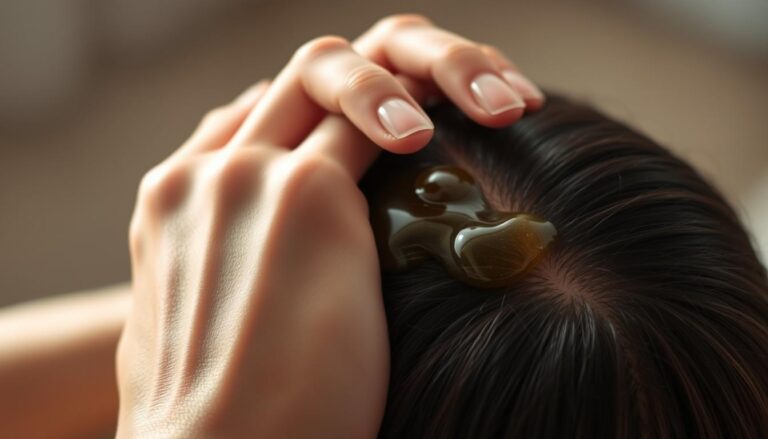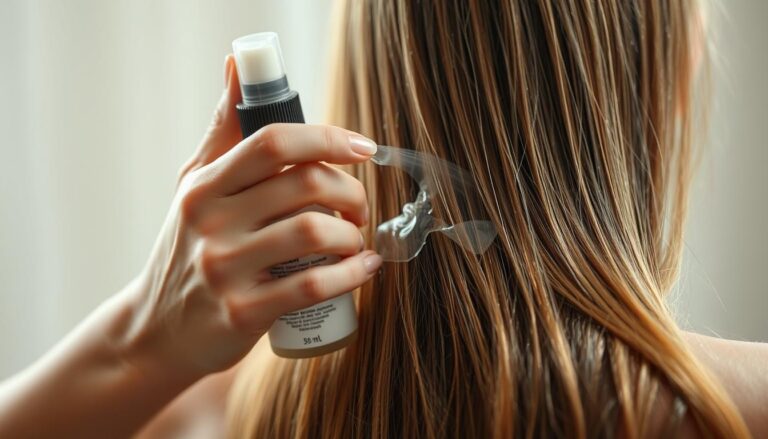At Glowskinhub.com, we believe beauty isn’t just a look—it’s a feeling
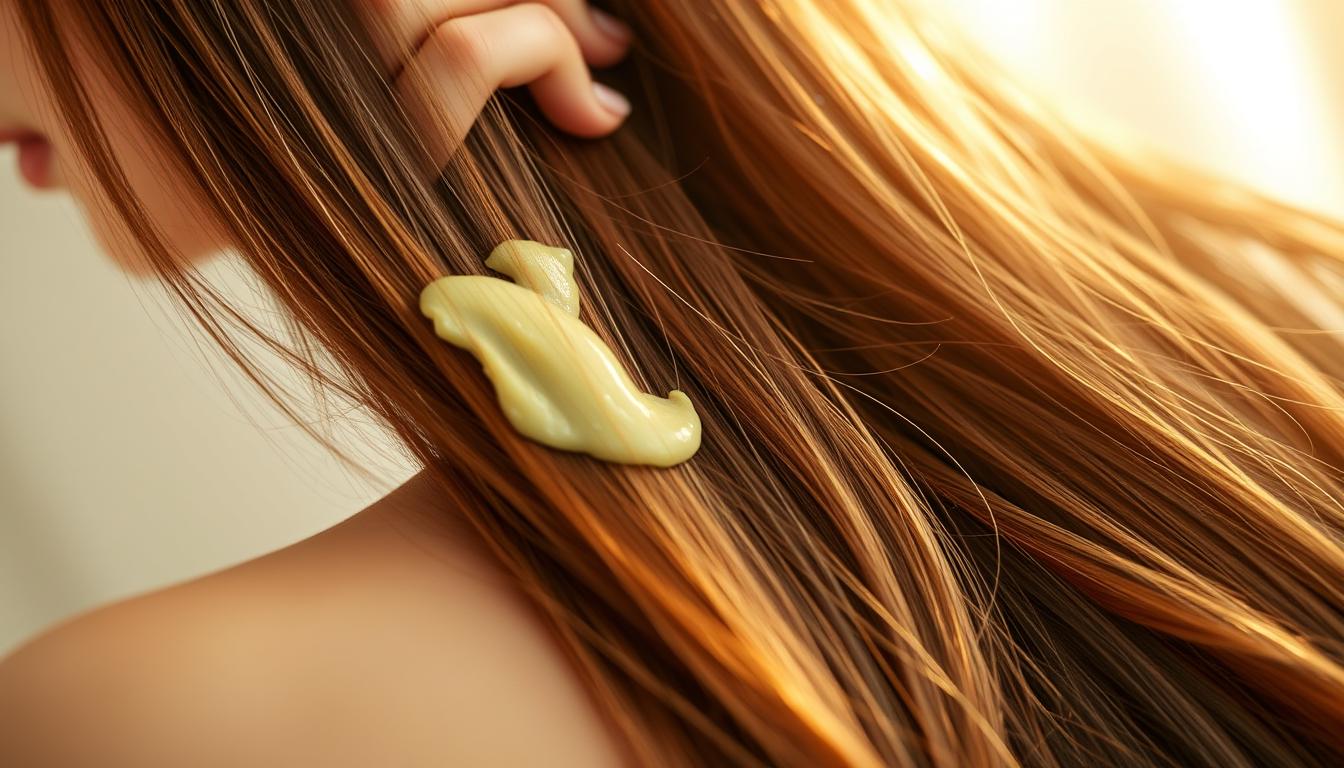
How to repair damaged hair naturally
Damaged hair can be a significant concern for many, affecting not just its appearance but also its overall health. Naturally restoring your hair’s vitality is a preferable method for many, as it avoids harsh chemicals.
With the numerous Hair Care tips available, it’s essential to understand the best practices for damaged hair repair. Simple, effective methods can make a significant difference in restoring your hair’s natural Beauty.
By incorporating natural hair repair techniques into your daily routine, you can achieve healthier, more resilient hair. This approach not only improves the appearance of your hair but also contributes to its long-term health.
Key Takeaways
- Understand the causes of damaged hair to prevent further damage.
- Utilise natural ingredients for effective hair repair.
- Implement simple Hair Care routines for healthier hair.
- Avoid harsh chemicals that can damage hair further.
- Regularly condition your hair to maintain its health.
Understanding Hair Damage: Signs and Causes
Hair damage, characterized by brittleness and dullness, can stem from multiple sources. Recognizing the signs and understanding the underlying causes are crucial steps towards effective Hair Care and restoration.
Common Signs of Damaged Hair
Damaged hair often exhibits noticeable symptoms, including split ends, brittleness, and a lack of luster. If your hair frequently breaks or feels rough to the touch, it may be damaged. Regularly checking for these signs can help you identify potential issues early.
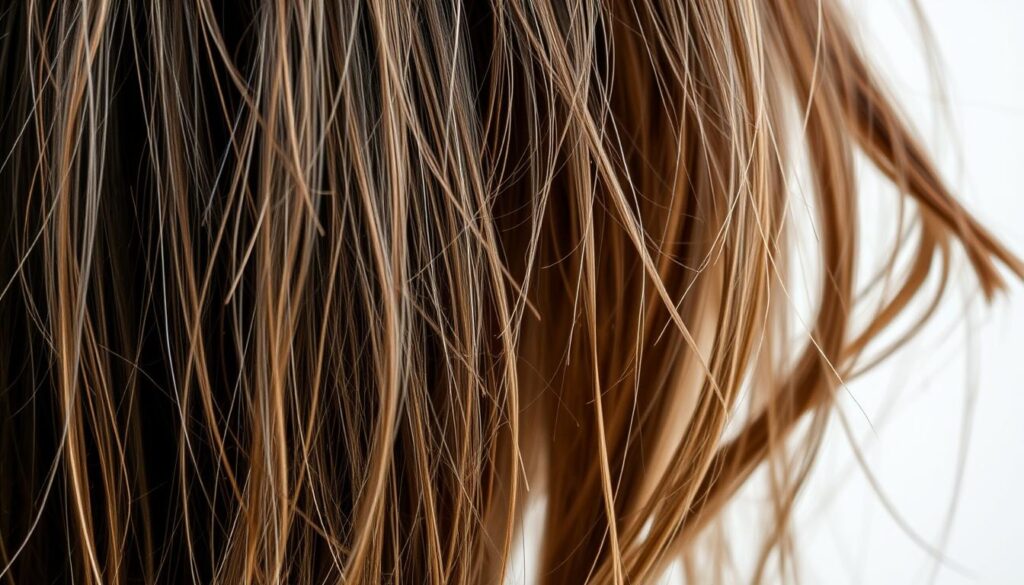
Primary Causes of Hair Damage
The causes of hair damage are varied, ranging from excessive heat styling and chemical treatments to environmental stressors like sun exposure and pollution. Understanding these causes is essential for devising an effective Hair Care strategy.
Assessing Your Hair’s Current Condition
To assess your hair’s condition, start by examining its elasticity and moisture retention. Healthy hair has a good balance of both. If your hair lacks elasticity or feels overly dry, it may indicate damage. Regular assessment helps in tailoring Hair Care tips to your hair’s specific needs.
By understanding the signs and causes of hair damage and regularly assessing your hair’s condition, you can take the first steps towards restoring your hair’s health and vitality.
The Science Behind Natural Hair Repair
The process of natural hair repair is grounded in understanding how damage occurs. Hair is a complex structure made primarily of keratin, a protein that gives hair its strength and elasticity.
Hair Structure and How Damage Occurs
Hair damage often results from the degradation of the hair’s cuticle layer, leading to issues like dryness, brittleness, and breakage. Factors such as excessive heat styling, chemical treatments, and environmental stressors can cause this damage.
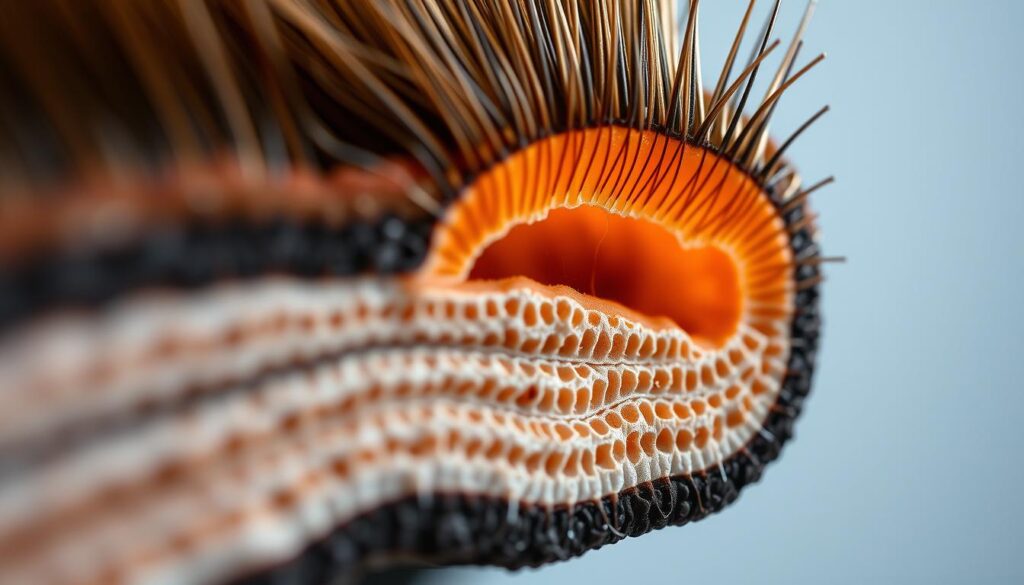
How Natural Ingredients Interact with Hair Fibres
Natural ingredients can interact with hair fibres in various beneficial ways. For instance, ingredients rich in antioxidants can protect hair from environmental damage, while those with moisturizing properties can help restore the hair’s natural moisture balance.
| Natural Ingredient | Benefit to Hair |
|---|---|
| Coconut Oil | Moisturizes and nourishes hair |
| Argan Oil | Restores shine and elasticity |
| Aloe Vera | Soothes scalp and promotes healthy growth |
Benefits of Natural Approaches vs Commercial Treatments
Natural approaches to hair repair offer several benefits over commercial treatments, including the avoidance of harsh chemicals and the promotion of overall hair health. Natural methods can be more cost-effective and environmentally friendly.
By understanding the science behind natural hair repair, individuals can make informed choices about their Hair Care routines, leveraging the power of natural ingredients to restore their hair’s health and vitality.
Essential Nutrition for Hair Repair from Within
Nourishing your hair from the inside out is crucial for repairing damage and promoting healthy growth. A diet rich in essential nutrients can significantly improve the health and appearance of your hair.
Hair-Healthy Foods and Nutrients
Consuming foods high in vitamins and minerals is vital for hair health. Foods rich in omega-3 fatty acids, zinc, and iron are particularly beneficial. Include salmon, walnuts, spinach, and almonds in your diet to provide your hair with the necessary nutrients for repair and growth.
- Vitamin C-rich foods like citrus fruits and berries
- Biotin-rich foods such as eggs and nuts
- Protein-rich foods like lean meats and fish
Supplements That Support Hair Restoration
In addition to a balanced diet, certain supplements can support hair health. Biotin, vitamin B, and fish oil supplements are known to promote hair growth and strengthen hair follicles.
Hydration and Its Impact on Hair Health
Adequate hydration is essential for maintaining healthy hair. Drinking plenty of water helps to keep your hair follicles hydrated, promoting healthy growth and reducing the risk of damage.
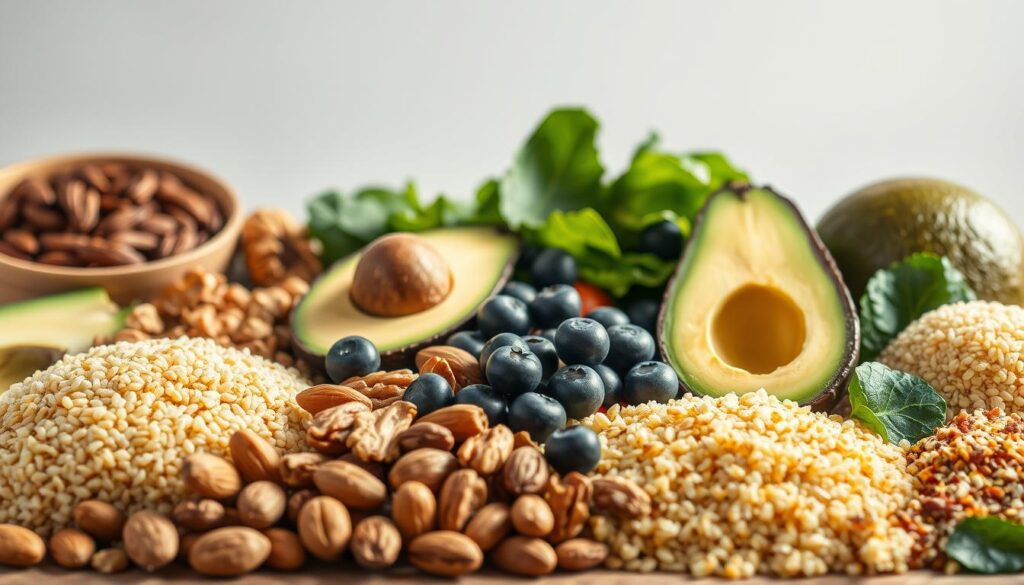
By focusing on a nutrient-rich diet and staying hydrated, you can significantly improve the health and appearance of your hair. Incorporating hair-healthy foods and supplements into your daily routine can lead to stronger, more resilient hair.
Natural Oils for Deep Conditioning and Repair
Natural oils offer a potent solution for repairing and restoring damaged hair to its former glory. These oils are rich in nutrients and have been used for centuries to nourish and protect hair.
Coconut Oil Treatments for Protein Retention
Coconut oil is renowned for its ability to penetrate the hair shaft, providing deep nourishment and protein retention. It contains lauric acid, which has a high affinity for hair proteins, making it an excellent treatment for damaged hair.
Benefits of Coconut Oil:
- Repairs protein loss
- Moisturises dry hair
- Reduces dandruff and other scalp issues
Argan Oil Benefits for Shine and Elasticity
Argan oil is rich in antioxidants and essential fatty acids, which help to hydrate the hair and improve its elasticity. It also adds a healthy shine to the hair, making it look vibrant and healthy.
Argan oil’s benefits include:
- Hydrates and nourishes hair
- Improves hair elasticity
- Adds shine and reduces frizz
Other Effective Oils for Different Hair Types
Different hair types benefit from different oils. Here’s a brief overview:
| Hair Type | Recommended Oil | Benefits |
|---|---|---|
| Dry, Brittle Hair | Olive Oil | Moisturises and nourishes |
| Balanced Hair | Jojoba Oil | Balances moisture, lightweight |
| Hair Needing Strength | Castor Oil | Strengthens and promotes growth |
Olive Oil for Dry, Brittle Hair
Olive oil is rich in antioxidants and fatty acids, making it perfect for dry, brittle hair. It deeply moisturises and helps repair damage.
Jojoba Oil for Balanced Moisture
Jojoba oil closely resembles the natural oils produced by our scalp, making it an excellent choice for balanced moisture. It’s lightweight and non-greasy.
Castor Oil for Strengthening and Growth
Castor oil is known for its ability to strengthen hair and promote growth. It’s rich in ricinoleic acid, which nourishes the scalp and hair follicles.
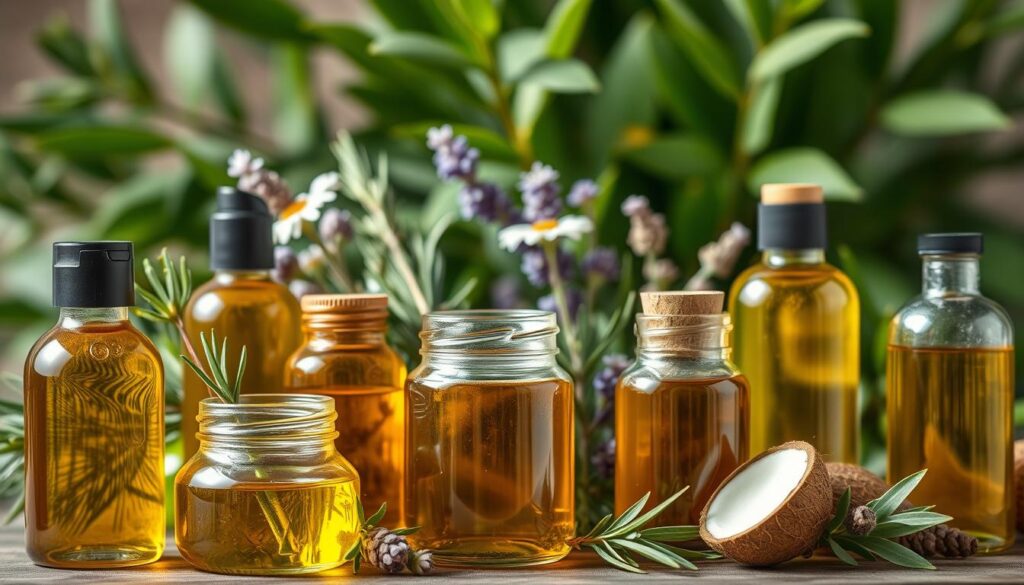
How to Repair Damaged Hair Naturally with DIY Masks
One of the most effective ways to repair damaged hair is by using natural DIY hair masks. These masks can be customised to address specific hair concerns, whether it’s dryness, brittleness, or lack of shine. By using readily available ingredients, you can create nourishing treatments that promote healthy hair growth and repair.
Protein-Rich Hair Masks
Protein-rich masks are essential for repairing damaged hair, as they help to rebuild and strengthen hair fibres. Damaged hair often lacks protein, leading to breakage and frizz.
Egg and Yoghurt Strengthening Treatment
An egg and yoghurt mask is a simple yet effective way to add protein to your hair. Eggs are rich in protein, while yoghurt contains lactic acid, which gently cleanses the scalp.
- Mix 1 egg with 2 tablespoons of plain yoghurt.
- Apply the mixture to damp hair, focusing on the ends.
- Leave it on for 15-20 minutes before rinsing with cool water.
Avocado and Banana Nourishing Blend
Avocados and bananas are both rich in nutrients that can help nourish and moisturise dry, damaged hair.
- Mash 1 ripe avocado and 1 ripe banana together.
- Mix in 1 tablespoon of honey for extra moisturising benefits.
- Apply the blend to your hair and leave it on for 30 minutes before rinsing.
Moisture-Restoring Masks
Moisture-restoring masks are crucial for hydrating dry, damaged hair. These masks help to lock in moisture, reducing frizz and improving hair elasticity.
Honey and Aloe Vera Hydrating Treatment
Honey is a natural humectant that attracts and retains moisture, while aloe vera soothes and calms the scalp.
- Mix equal parts honey and aloe vera gel.
- Apply the mixture to your hair, focusing on the ends.
- Leave it on for 20-30 minutes before rinsing with warm water.
Mayonnaise and Olive Oil Deep Conditioner
Mayonnaise is rich in oils and proteins that can deeply condition and moisturise dry hair.
| Ingredient | Benefit |
|---|---|
| Mayonnaise | Deep conditioning and moisturising |
| Olive Oil | Hydrates and adds shine |
| Combined | Intensively nourishes and repairs damaged hair |
To use, apply a generous amount of mayonnaise to your hair, add a few drops of olive oil, and leave it on for 30 minutes to an hour before rinsing.
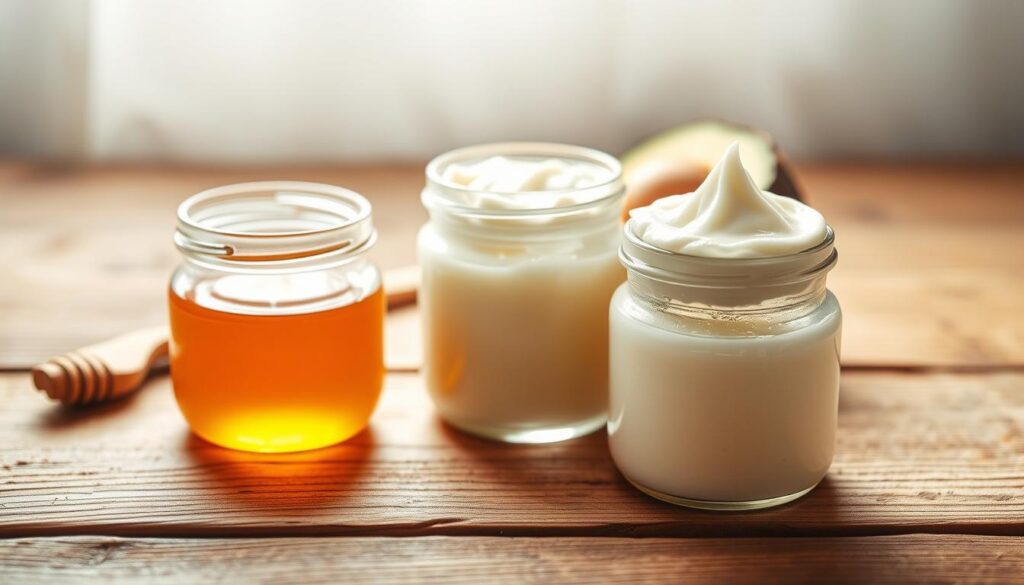
Herbal Remedies for Hair Restoration
Nature provides an array of herbal remedies that can help restore damaged hair to its former glory. For centuries, herbs have been used to promote hair health, and their effectiveness is now being recognised by modern science.
Aloe Vera Gel Applications
Aloe vera gel is renowned for its soothing and nourishing properties. It can be applied directly to the hair and scalp to promote healing and hydration. Aloe vera’s anti-inflammatory properties can help reduce scalp irritations, creating a healthier environment for hair growth.
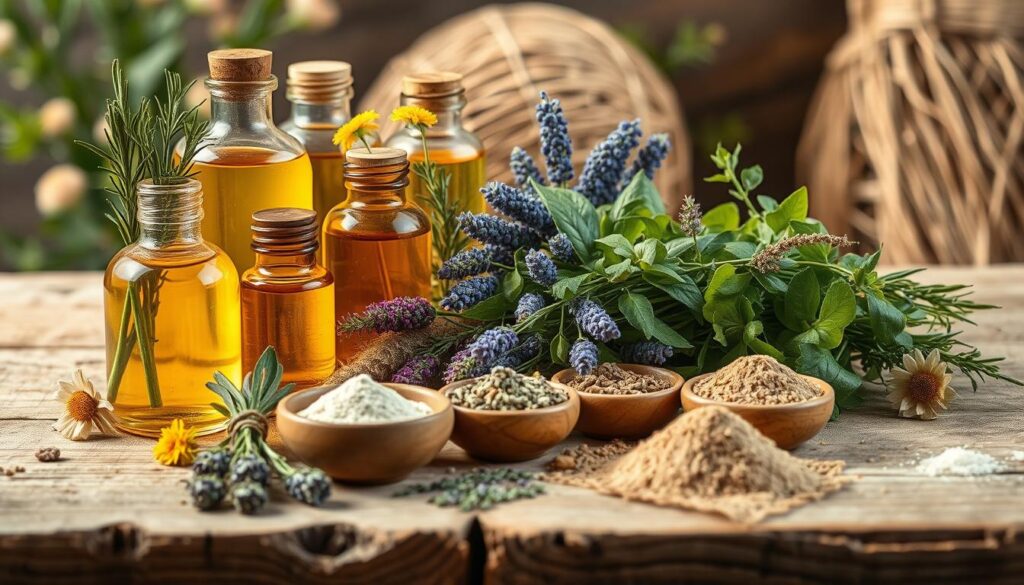
Rosemary and Other British Garden Herbs for Hair
Rosemary is a popular herb known to stimulate hair growth and improve circulation to the scalp. Other British garden herbs like sage and chamomile can also be beneficial. Sage can help darken hair and improve its texture, while chamomile can add shine and soothe the scalp.
Herbal Rinses and Infusions for Shine and Strength
Herbal rinses and infusions can be a great way to add the benefits of herbs to your Hair Care routine. For example, a rosemary infusion can be used as a final rinse after shampooing to add shine and stimulate the scalp. Similarly, a chamomile infusion can help to calm the scalp and add a healthy glow to the hair.
By incorporating these herbal remedies into your Hair Care routine, you can take a natural and effective approach to restoring your hair’s health and vitality.
Gentle Hair Care Practices to Prevent Further Damage
Adopting gentle Hair Care practices is crucial for preventing further damage to your hair. When hair is damaged, it requires extra care to restore its health and vitality. Gentle Hair Care is not just about using the right products, but also about adopting techniques that minimize stress on the hair.
Proper Washing Techniques for Damaged Hair
Washing your hair is a daily routine for many, but it’s essential to do it gently to avoid further damage. Use lukewarm water instead of hot water, which can strip your hair of its natural oils. When shampooing, gently massage your scalp with your fingertips, working downwards. Avoid using harsh scrubbing motions or rubbing your hair with a towel, as this can cause breakage.
| Washing Technique | Benefits |
|---|---|
| Lukewarm water | Preserves natural oils |
| Gentle massaging | Reduces breakage |
| Avoid harsh scrubbing | Minimizes damage |
Heat-Free Styling Methods for Recovery
Heat styling tools can significantly damage hair, especially when it’s already compromised. Heat-free styling methods are a great alternative, allowing your hair to recover while still looking great. Techniques like braiding, twisting, or simply air-drying can be very effective.
“The best way to get your hair to a healthy state is to be gentle with it.”
Protective Hairstyles for Day and Night
Protective hairstyles are an excellent way to safeguard your hair from daily wear and tear. Styles like buns, braids, or ponytails can be worn during the day, while styles like loose braids or buns can be worn at night to prevent tangling while you sleep. 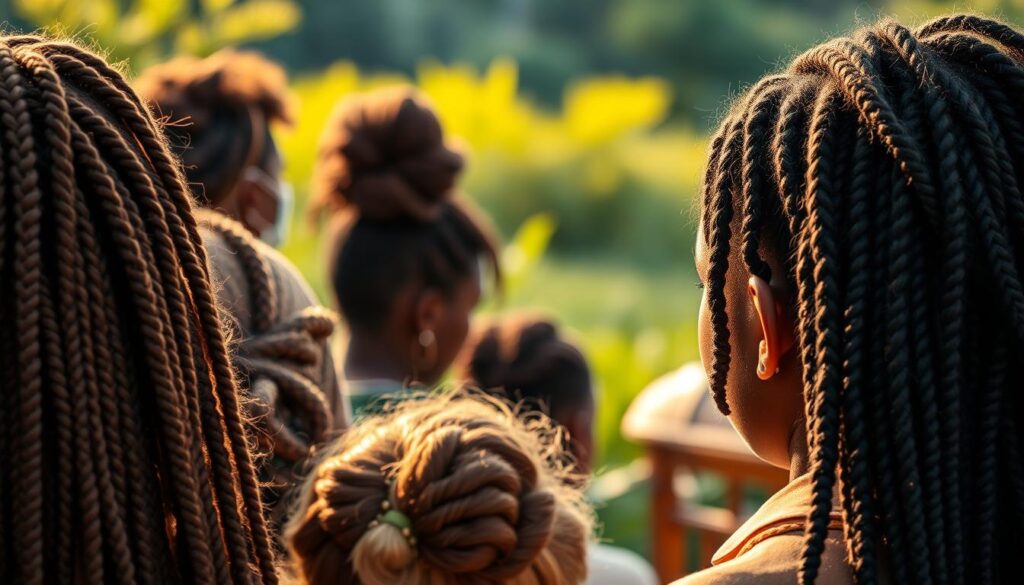
By incorporating these gentle Hair Care practices into your daily routine, you can significantly reduce further damage to your hair and aid in its recovery.
Natural Hair Care Product Recommendations
The market is flooded with Hair Care products, but natural options are the best for repairing damaged hair. When selecting products, it’s essential to know what ingredients are beneficial and which ones to avoid.
Beneficial Ingredients to Look For
Natural Hair Care products rich in coconut oil, argan oil, and shea butter are excellent for nourishing and moisturizing damaged hair. Argan oil, often referred to as “liquid gold,” is particularly beneficial for its antioxidant properties and ability to enhance shine and elasticity.
Other beneficial ingredients include keratin, vitamins E and C, and essential oils like lavender and rosemary. These ingredients help in protein retention, antioxidant protection, and stimulating hair growth.
Harmful Ingredients to Avoid
When shopping for natural Hair Care products, it’s equally important to avoid harmful ingredients. Sulfates, parabens, and silicones are commonly found in commercial Hair Care products and can strip hair of its natural oils, cause buildup, and lead to further damage.
Always check the ingredient list for harsh chemicals and opt for products that are labeled as sulfate-free and paraben-free to ensure you’re giving your hair the gentle care it needs.
Top Natural Brands Available in British Shops
Several natural Hair Care brands are available in the UK, offering high-quality products. Briogeo, Moroccanoil, and Neal’s Yard Remedies are popular choices among consumers looking for natural Hair Care solutions.
These brands offer a range of products that are not only effective but also formulated with natural ingredients. For instance, Moroccanoil’s Argan Oil is a highly praised product for its nourishing properties.
By choosing products with beneficial ingredients and avoiding harmful ones, you can significantly improve the health of your damaged hair. Always read labels carefully and choose products from reputable natural brands.
Creating a Weekly Hair Repair Routine
To restore damaged hair, it’s essential to develop a consistent weekly hair repair routine. This involves a combination of daily maintenance practices, regular deep treatments, and adjustments based on seasonal changes.
Daily Maintenance Practices
Daily care is crucial for maintaining healthy hair. Start by using a gentle, sulfate-free shampoo and conditioner suitable for your hair type. When washing, gently massage your scalp to stimulate blood flow, and avoid harsh rubbing or scrubbing that can further damage your hair.
For daily styling, consider using a wide-tooth comb or a detangling brush to minimize breakage. Limit the use of heat styling tools or use a heat protectant spray to shield your hair from damage.
Weekly Deep Treatment Schedule
A weekly deep treatment can significantly enhance your hair repair routine. Use a deep conditioning mask or a hair treatment product containing nourishing ingredients like argan oil, coconut oil, or shea butter.
Here’s a sample deep treatment schedule:
| Day | Treatment | Product |
|---|---|---|
| Monday | Deep Conditioning | Argan oil mask |
| Wednesday | Hair Mask | Coconut oil hair mask |
| Friday | Leave-in Treatment | Sulfate-free leave-in conditioner |
Seasonal Adjustments for British Weather Conditions
The British weather can be quite unpredictable, with cold winters and mild summers. Adjust your Hair Care routine accordingly to combat dryness in winter and frizz in summer.
For instance, during the dry winter months, use more moisturizing products and consider adding a hair oil to your routine to lock in moisture. In the summer, use a frizz-fighting Serum or a lightweight hair spray to keep your hair manageable.
Conclusion: Embracing Natural Hair Restoration
Embracing natural hair restoration is a journey that transforms damaged hair into a healthy, vibrant mane. By understanding the causes of hair damage and adopting gentle, nourishing practices, individuals can revitalise their locks.
Using natural ingredients like coconut oil, argan oil, and aloe vera gel can help repair and protect hair. A balanced diet rich in hair-healthy nutrients, along with a consistent Hair Care routine, supports the restoration process.
By incorporating these natural methods into daily Hair Care, individuals can achieve resilient, healthy-looking hair. This holistic approach to hair restoration not only improves the appearance of hair but also promotes overall hair health, leading to a more confident and beautiful you.
As you embark on your natural hair restoration journey, remember that patience and consistency are key. With time, the benefits of natural Hair Care will become apparent, leaving you with a fuller, healthier head of hair.

